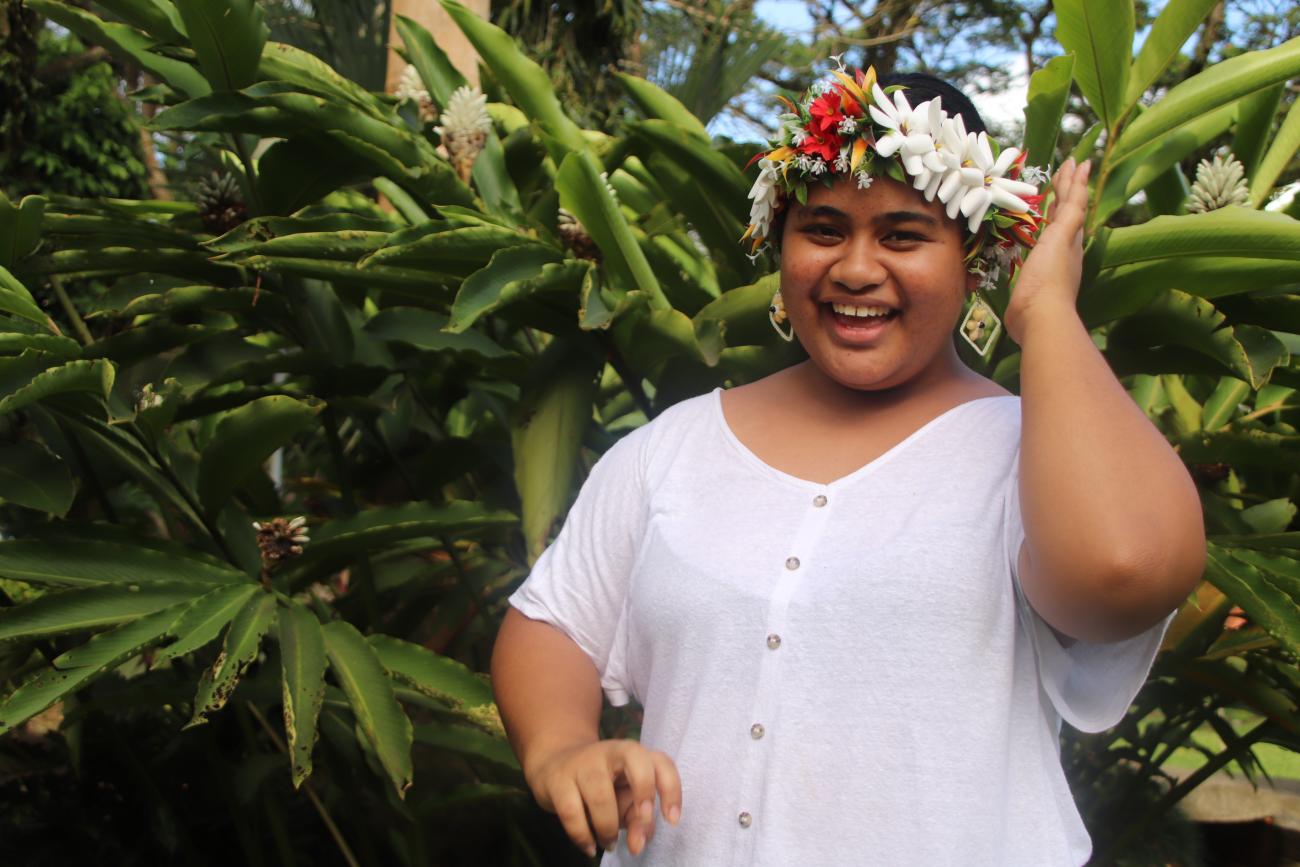As we surface from an unexpected global pandemic which left us with immeasurable loss of life and brought the worst recession in 90 years,1 we find ourselves amidst another period of political turmoil and economic unpredictability.
For us in the Pacific, the climate emergency adds another layer of increasing urgency.
Against this bleak backdrop, however, we now have a more profound knowledge of our vulnerabilities and strengths, a deeper penetration of digital technologies - particularly in rural areas - a renewed appreciation for nature, and an opportunity to take back the last two years as we reorient towards greener, more inclusive economies and societies.
This week, we marked UN Day - the 77th anniversary of the UN, and the day we collectively decided that working together was our greatest asset against the world’s most pressing issues.
The UN was created in the aftermath of great turmoil – so not only do we represent hope, but we also have the unique ability to convene to create hope and bring about real change.
What remains now is a bold decision by each of you, for our action or inaction in the next eight years will decide between a decade lost and a decade reclaimed.
The Sustainable Development Goals
Now more than ever, we need to harness and capitalize on the spirit of ‘accomplishment through unity’ to get back on track to achieving the SDGs by 2030 – indeed this is a bold agenda, but it requires nothing short of transformative actions and accelerated commitments from everyone.
Last year, we began the important journey of creating our UN Sustainable Development Cooperation Framework 2023-2027 - the blueprint of our work in the Pacific over the next five years.
Consulting with governments, civil society, development partners, the private sector, and CROP agencies, we have created a Pacific-wide framework which, for the first time, tangibly connects global goals to national development priorities and is aligned to the new 2050 Strategy for the Blue Pacific Continent launched by Pacific Islands Forum Secretariat (PIFS) this year.
In this five-year window, we have a shot to strengthen our joint work, recalibrate together, and refocus our efforts, so that come 2030, we are well on our way to ticking all 17 SDGs off our collective ‘to-do’ list.
The Climate Crisis and Economic Diversification
As a forward-looking country with development aspirations firmly rooted in peace and prosperity for all its people, Tuvalu has many transformational opportunities in sight.
The atoll nation of Tuvalu is probably the country most at-risk in the world of sea-level rise, to the point that it has envisaged in all seriousness alternatives to living on its own soil, including buying land elsewhere in the region.
Tuvalu has experienced solid growth over the two last decades, prior to COVID-19.
It has responded to the pandemic with efficacy and promptitude, avoiding any spread on its islands and supporting those hurt by the crisis.
It has attained universal literacy, universal access to electricity and to improved water services, good internet and mobile telephony penetration, and declining neonatal and under-five mortality rates.
Public expenditure on health and education is high by any measure of comparison.
There are many possibilities to accelerate Tuvalu’s development pathways.
Turning its structural characteristics into strengths and advantages, the country has the possibility to design a future of wellbeing and sustainable human development for its relatively small number of citizens, simply by investing in some of its assets and continuing the transformation process that it has begun.
Moving forward, diversifying the economy is a crucial protection against shocks.
Relying on fishing licenses and ODA as sources of income risks the volatility of both revenues if other nations decide to reduce their support, their activity or valued fish species migrate.
Developing a quality ‘adventure tourism’ offer, based on attractions that Tuvalu can develop; intensifying small-scale agriculture to reduce overreliance on imported food; and inserting itself in the global economy through digitalisation and fintech bear transformative potential for Tuvalu.
Additionally, the design of a new, diversified, Blue Economy could attract foreign direct investment, generate growth by a newly developed private sector, and create the jobs the Tuvaluan youth and women need to participate meaningfully in society.
And finally, strengthened social cohesion and human security, and the operation of a strong risk-informed disaster risk recovery plan and the upgrade of existing infrastructure could support national resilience-building.
Investing in Gender Equality
In the Pacific, as gender inequalities persist, and recent shocks, including the pandemic and economic crises, have aggravated the current scenario for women in Tuvalu, we need to strengthen and expand social protection systems to cover women which can work as insurance, increasing their bargaining power at the household level, promoting financial inclusion, supporting long-term income generation and building agency.
Investing in gender-sensitive responses to shocks, especially initiatives that build partnerships between governments and civil society, will help women better cope with uncertainty.
Women’s and social movements have an important role to play in advancing better legal rights to participate in economic life, greater representation in politics, better support for paid and unpaid domestic care work, better protection from sexual harassment, better access to land tenure, financial inclusion, overcoming stigma and raising awareness around violence against women and girls.
Social movements can advance human rights and change cultural norms and narratives to expand agency and freedoms for all.
Our monetary support to Tuvalu is over US$17m for 2022, and as long-standing development partners, the UN will continue to work in the Tuvalu on areas such as climate action, strategic restructuring of economic sectors, health and education, social protection, gender equality, childhood protection, and digital and blue economy development.
Other areas the UN will continue to work on include food security, humanitarian aid and recovery, infrastructure, macroeconomic management, and relocation of communities at risk.


















